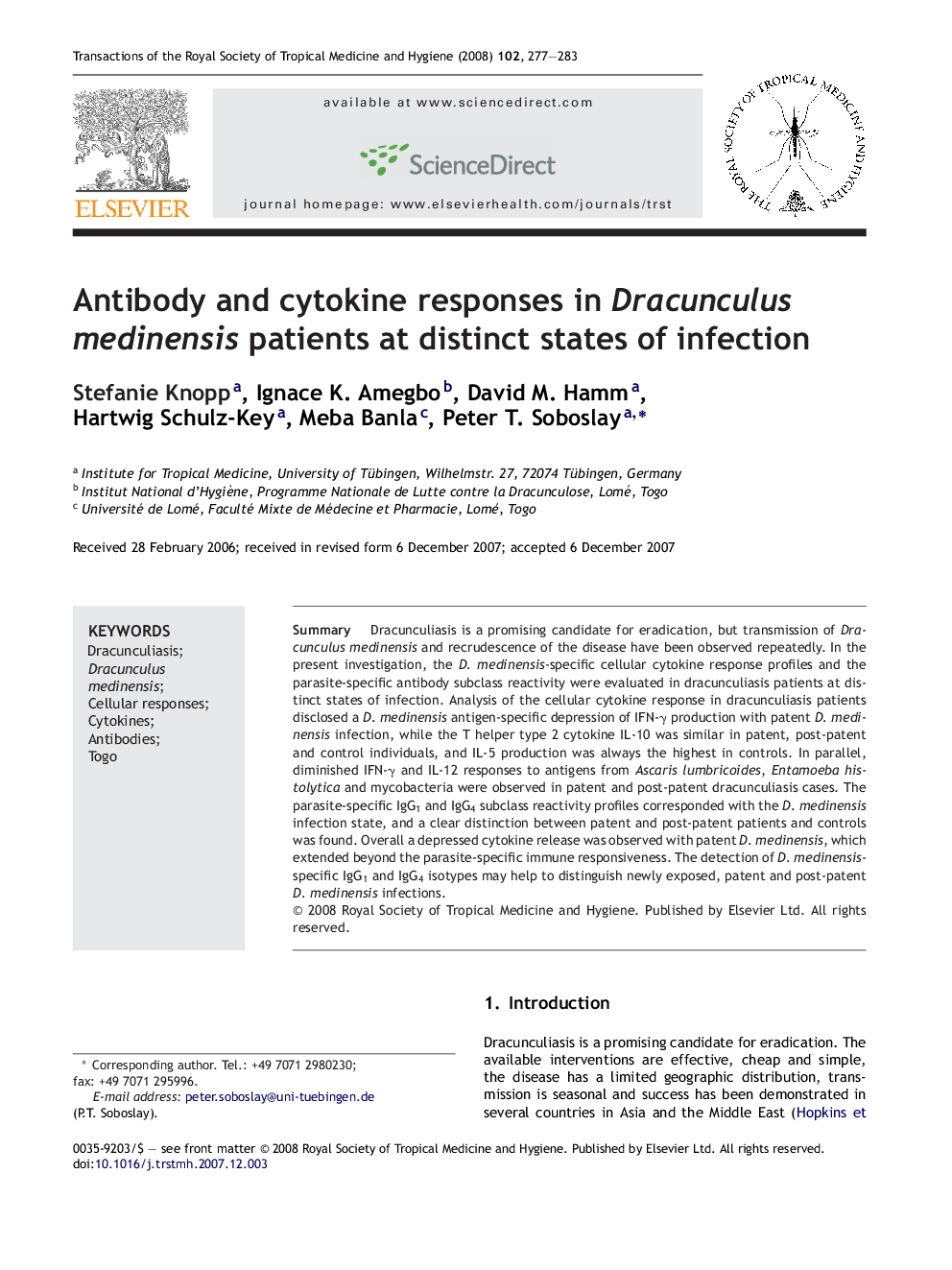| Article ID | Journal | Published Year | Pages | File Type |
|---|---|---|---|---|
| 6137751 | Transactions of the Royal Society of Tropical Medicine and Hygiene | 2008 | 7 Pages |
Abstract
Dracunculiasis is a promising candidate for eradication, but transmission of Dracunculus medinensis and recrudescence of the disease have been observed repeatedly. In the present investigation, the D. medinensis-specific cellular cytokine response profiles and the parasite-specific antibody subclass reactivity were evaluated in dracunculiasis patients at distinct states of infection. Analysis of the cellular cytokine response in dracunculiasis patients disclosed a D. medinensis antigen-specific depression of IFN-γ production with patent D. medinensis infection, while the T helper type 2 cytokine IL-10 was similar in patent, post-patent and control individuals, and IL-5 production was always the highest in controls. In parallel, diminished IFN-γ and IL-12 responses to antigens from Ascaris lumbricoides, Entamoeba histolytica and mycobacteria were observed in patent and post-patent dracunculiasis cases. The parasite-specific IgG1 and IgG4 subclass reactivity profiles corresponded with the D. medinensis infection state, and a clear distinction between patent and post-patent patients and controls was found. Overall a depressed cytokine release was observed with patent D. medinensis, which extended beyond the parasite-specific immune responsiveness. The detection of D. medinensis-specific IgG1 and IgG4 isotypes may help to distinguish newly exposed, patent and post-patent D. medinensis infections.
Related Topics
Life Sciences
Immunology and Microbiology
Applied Microbiology and Biotechnology
Authors
Stefanie Knopp, Ignace K. Amegbo, David M. Hamm, Hartwig Schulz-Key, Meba Banla, Peter T. Soboslay,
